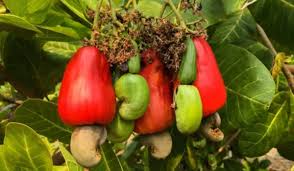
Projects

Cultivation of Organic Cashew and Establishment of Raw Nut Bank
In response to the growing demand for chemical-free agricultural produce and the need to make Kerala a hub for sustainable farming, KSACC is promoting the cultivation of organic cashew. This project is focused on encouraging cashew farmers to adopt organic farming practices by eliminating the use of synthetic fertilizers, chemical pesticides, and growth regulators. Farmers are trained and supported in techniques such as composting, bio-fertilizer application, integrated pest management (IPM), and soil health enrichment through natural means.
Complementing this initiative is the creation of a Raw Nut Bank, which is envisioned as a centralized infrastructure for the scientific collection, classification, grading, and storage of raw cashew nuts produced by organic farmers. The Raw Nut Bank will help in building a buffer stock, maintaining consistent supply to processors, ensuring fair pricing, and minimizing post- harvest losses due to spoilage or improper storage. This project empowers farmers by providing market stability, premium pricing for organically grown nuts, and greater control over their produce. It also opens the door for value- added branding and marketing of Kerala Organic Cashew in domestic and international markets.

Pollination Support through Bee Keeping
KSACC recognizes that pollination is a critical factor in enhancing both the quality and quantity of cashew yields. As cashew trees are highly dependent on insect-mediated cross-pollination for optimum nut formation, KSACC has launched a Pollination Support Project through Integrated Bee Keeping. This project introduces apiculture (bee keeping) as a complementary practice within cashew plantations.
Under this initiative, farmers are sensitized to the benefits of maintaining beehives in or around their cashew plots. KSACC provides technical training, support for hive installation, and knowledge on colony management. The presence of honeybees significantly improves pollination efficiency, resulting in better fruit set, uniform nut size, and increased yields.
In addition to boosting cashew production, bee keeping provides farmers with an additional stream of income through the sale of honey, beeswax, and other hive products. This integrated model promotes biodiversity, supports ecological balance, and contributes to overall farm sustainability. It is especially beneficial for small and marginal farmers as it requires minimal investment while offering high ecological and economic returns.

GIS Implementation in Cashew Plantations for Field Monitoring
In a significant move towards digital transformation in agriculture, KSACC has initiated the GIS (Geographic Information System) Mapping and Monitoring Project for cashew plantations across Kerala. The objective of this project is to enable real-time monitoring and scientific management of cashew plantations by leveraging advanced geo-spatial technologies.
Through this project, each cashew plot is geo-tagged, and key data—such as plantation size, location, planting density, age of plants, graft survival rate, and health status—is digitally captured and stored. Satellite imagery and drone mapping may also be utilized in selected areas to identify crop stress zones, gaps in planting, or infestation-prone regions.
The implementation of GIS allows KSACC to create a centralized digital plantation registry, enabling transparent tracking of scheme implementation, field activities, subsidy disbursement, and crop performance. It enhances decision-making by allowing data-driven analysis, forecasting, and targeted interventions. For farmers, it brings better visibility into their participation in government schemes and facilitates quicker grievance redressal. For the department, it marks a major leap toward a smart, accountable, and efficient agricultural governance system.

